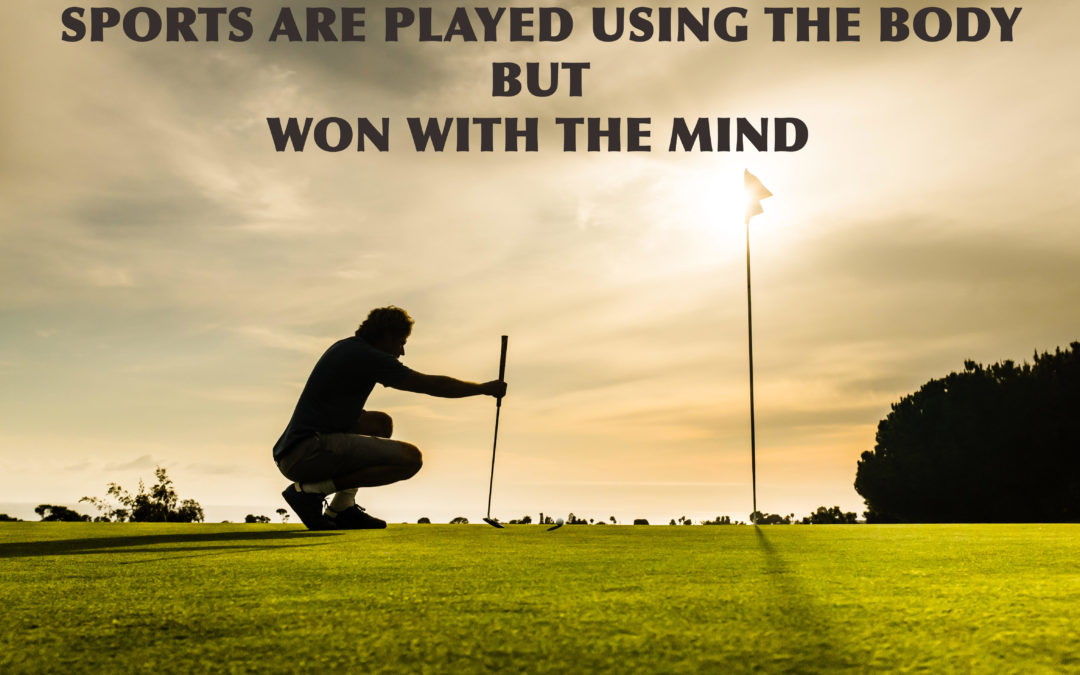5 Reasons Why Players Lose Confidence in Their Game
Every single person on this planet has confidence issues somewhere in their life. Even Superman lacked self-confidence while being without his cape. However, for athletes wanting to raise themselves to the next level, they must overcome this barrier. In this article, I will list the most significant reasons which, I believe, cause athletes to lose assurance in their ability. I will than proceed to review strategies you can implement to conquer the roadblocks that are impeding your game.
Reason #1
Fear of failure.
Fear of failure will have you playing defensively with the intention of not losing verses playing with the mindset to win. This fear will cause you to tighten up, hold your breath and play protectively instead of playing with intent and strength. Every athlete faces losses in their career but when their fear of failure overrides their determination to win, the loss is felt much deeper because they know that it was their lack of confidence that caused them not to perform at their full potential. Fear of failure can come from several sources…
*Fear of disappointing your parents.
*Fear of letting yourself down.
*Fear of losing the lead that you have established in the match.
*Fear stemming from a consistency of matches lost recently.
*Fear of losing to your peers and being embarrassed.
SUGGESTIONS TO USE
A) Fear of failure is an emotional threat and one that can be turned into an emotional advantage. Instead of letting this fear make you feel helpless and wanting to avoid the threat, turn it into an emotion challenge. Any emotion can be used as an advantage, even the emotion of anger if caught quickly. It can cause you to increase your intensity and propel you to fight harder. So, whenever you catch yourself feeling fear, shift the emotion into a sudden burst of anger for feeling that way and use it to drive your focus to compete relentlessly for what you want.
B) Understand that fear and excitement can cause the same reactions in your body. If you can change your perception to one of anticipation of the challenge, you can use your body’s reaction to your benefit. Challenge yourself to see what you are capable of.
C) Identify what it is that you are afraid of and confront it with self-truth and forgiveness. Find ways of looking it in the eye and realize “You have nothing to fear but fear itself.”
D) Once you have identified a fear, make a small progression every day in overcoming it. When you see yourself taking ACTION everyday towards the desired goal of defeating your fear, you will begin to realize that you are capable of overcoming any obstacle that stands in your way.
Reason #2
Lack of self-confidence in their ability.
There are two areas in an athlete’s sport where they need to have confidence. Practice self-confidence, meaning to have confidence in what an athlete does for their performance when they are not playing in games that have significance. And more importantly, they need to have competitive self-confidence. This is where athletes have confidence within themselves to take the ability that they demonstrate during practice into the games where they feel pressure to perform at their best. Most commonly, athletes will have practice self-confidence but will not have the confidence within themselves to perform when competing. Or they may rely too heavily on their competitive self-confidence and neglect the training that is needed to take them to the next level. If an athlete only feels confident in their practice game, they will generally go out and play with the weighted pressure of knowing that their lack of confidence while competing has held them back in the past. They will start off either over-analyzing their technique or begin playing defensively till their nerves settle down.
SUGGESTIONS TO USE
A) Recognize that the lack of confidence that you are feeling is a common occurrence that most athletes have in their competitive performance, compared to their performance during practice or individual lessons. Once you accept that this is a universal attribute, particularly amongst Jr.
players, you can move past the self-judgment and begin to find ways to overcome this hurdle.
B) Confidence takes time to establish. Learn to give yourself positive feedback and acknowledge all the amazing things you do correctly throughout each day while playing your sport and in your personal life.
C) Let the punishment fit the crime. If you make a mistake, do not blow it out of proportion. Extremely negative emotional reactions to the slightest of errors will cause an athlete to become incoherent and lose their focus on the next goal that needs to be met. High level athletes know how to be objective about their mistakes and do not over identify an emotion that does not fit the crime.
D) Before going into a competitive game, take the time to center yourself and visualize the type of player you want to portray to yourself and to the players around you.
E) Notice when another player is displaying confidence in his/her and mirror their energy to your benefit.
F) Give yourself a fist pump when you do something great. Your brain will reward you with a chemical response and will imprint what you did to remind you of what to do in the future.
G) In every game, you either Win or Learn. You never lose a game if there is something to be gained from it. Never give yourself excuses of why you did not win. Have self-truth regarding what mistakes you made and make a mental note to work on them the following week, and then move on to concentrate on your next game.
Reason #3
Over-analyzing your stroke while playing when it counts.
When you are an analytical personality type, you tend to over-analyze your performance which causes you to be over critical of your technique when the pressure is on. It is impossible for you to concentrate on what is playing out in front of you if you are reviewing and scrutinizing your past shots. This may also cause you to spend too much time evaluating your opponent’s game which will cause distraction in your own. When an athlete is more rigid in their analytical thinking process, they can easily become emotional to the point of becoming incoherent when they feel that they are not performing exactly as they should. Striving to be a perfectionist should only be done in practices or lessons, otherwise it will cause you to over-perform and/or over-think your game while playing when it counts.
SUGGESTIONS TO USE
A) Define your goals and objectives each day but also allow for creative thinking to have its place in your game.
B) Let go of your thinking brain and let your body do what it knows to do.
C) Set the intention to only focus on one or two techniques during your lessons so that you can practice on quieting the mind to let your natural instinct kick in.
D) When you notice that you are feeling frustrated over a technique, take a step back to reset. Feel your chest rising and falling with each breath you take. Remember why you love the sport you are playing. When you feel yourself settling down, set an intention of how you want to feel for the remaining lesson.
Reason #4
Body language while playing in competitive mode.
Sports are all about the body movement and nonverbal communication. Competitors have to stake their claim by showing through their body language that they are eager to take on whatever the opponent brings to the table. If your shoulders are slumped and your eyes are downcast to the ground while not actively playing, it may reflect that you are lacking confidence. Additionally, if you are exhibiting negative self-talk loud enough for your opponent to hear, it indicates to them that you are in a non-coherent mindset and they can now take advantage of that. Your opponent can either repeat what they did before to bring about the same response or know that they now have the opportunity to take the lead while you are in this mindset.
SUGGESTIONS TO USE
A) Always give yourself positive feedback when you have made the appropriate play in your game.
B) If you make an error, do a shadow movement of the correct objective. Not only will this reestablish what to do correctly next time, but it will also let your opponent know that your head is still in the game verses being distracted by your last error.
C) Look your opponent in the eye while speaking with them and use a clear strong voice to convey what it is that you are saying. This sends a strong signal that you are ready to take on any challenge that comes your way.
D) While walking to the position where you need to be for your game, draw your shoulders back and stand tall at your full height. This will release an extra boost of testosterone into your system, which will only increase the self-confidence that you need.
E) Give yourself a fist pump or some other movement that lets yourself and your opponent know that you are in the zone. This will cause them to be distracted if they are not also feeling the self-assurance that you are currently feeling.
Reason #5
Coach training mindset while playing when it counts.
When you take lessons all week, working on your technical skills rather than playing games where you are being held accountable, you can get stuck in training mode, concentrating too much on your technical skills verses just playing your game. You will also not be prepared for the pressure you will feel when up against a real opponent, who will not be giving you leeway when you make errors.
SUGGESTIONS TO USE
A) When playing a match or game where there is something on the line, learn to let go of the how-to’s and become present in the moment, so you can focus on getting the job done that you already know instinctively how to do.
B) Let go of the emphasis of the outcome of the game and learn to focus on the objective that is playing out in front of you.
C) Spend an equal amount of time playing practice matches so when it comes to playing when it counts, you will be able to handle the mental pressure that you would have normally felt before.
D) Use your coach and your own time wisely. When taking a lesson, go with the intent of zeroing in on what the coach is instructing. Practice these directives repetitively till they become a habit, so that you will not need numerous lessons to perfect the teachings.
E) During practice matches, only concentrate on one or two goals so that you can still focus on learning the new concepts your coach is bringing to your game, while at the same time freeing your mind to focus on winning the match.
I hope this article will assist you in overcoming any obstacles that have blocked your confidence in the past and all the while, elevating your game in the future. If you have any questions in regards to the tips I provided, please do not hesitate to reach out to me. I can be emailed at Stillpointperformance@gmail.com or simply go onto to StillPointPerformance.com for additional information.
Written By
Jennifer Heistand
StillPoint Performance

